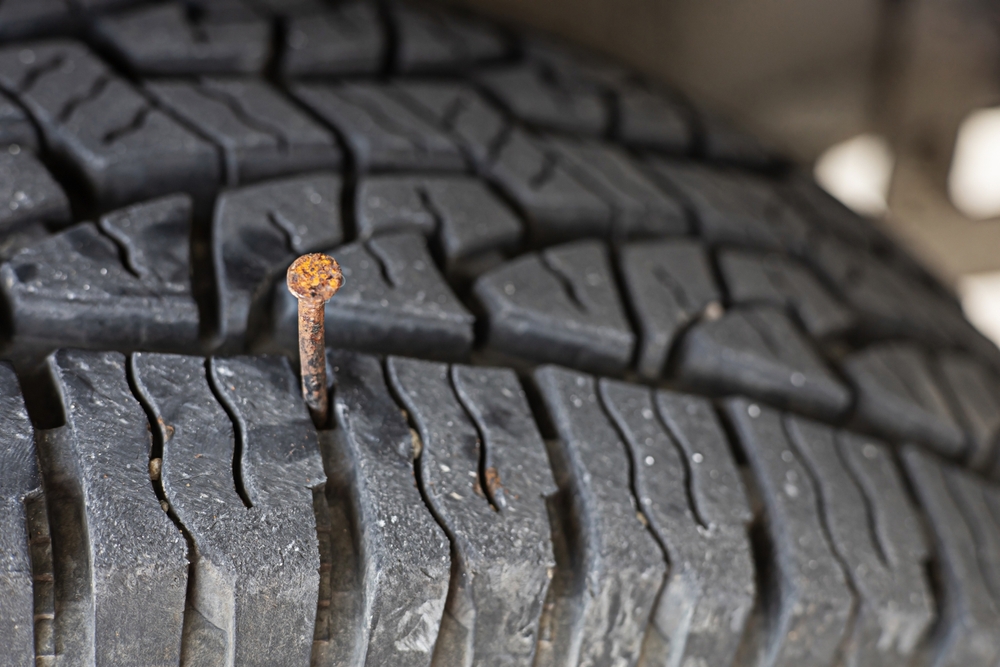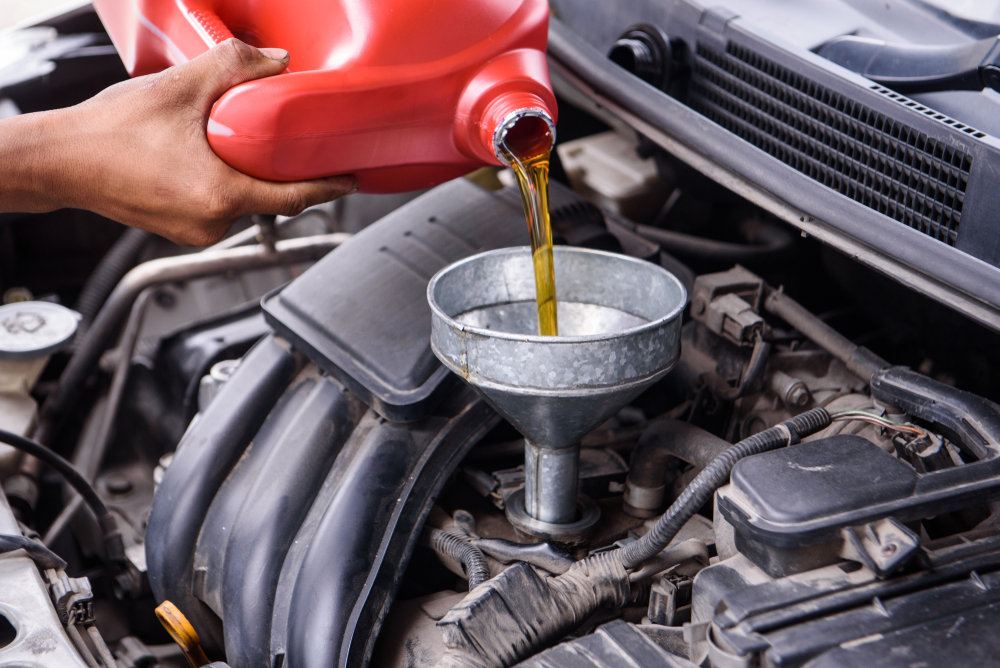6 Benefits of Frequent Tire Rotation
Published on
March 13, 2025

We know what you are thinking, how often do I need a tire rotation? Quick answer, every 5,000 to 7,500 miles or roughly every other oil change.
Ok, why do you need to rotate your tires? Many drivers believe it's to promote even tread wear across all four tires. While this is correct, it's only one of the key benefits drivers can realize from regular tire rotations. Regular tire rotations can also ensure a smoother overall ride.
In this post, we'll discuss what a typical tire rotation consists of, the benefits of tire rotation, and some signs that could indicate you need to rotate your tires. Read on to learn more or contact your local GreatWater 360 Auto Care-affiliated shop to speak with a tire expert or schedule an appointment today.
What is Tire Rotation & How Does it Work?
Let's start with the basics: What is a tire rotation? Simply put, it's routine repositioning of a vehicle's tires to ensure that no tire is experiencing tread wear faster than any of the other tires.
What does a tire rotation do? A tire rotation may consist of moving the rear tires to the front of the vehicle and the front tires to the rear. Front and rear-wheel drive vehicles often have their tires rotated in a forward-cross pattern. For instance, the rear driver's side tire would be swapped with the front passenger-side tire.
Tire rotations are performed by lifting the vehicle on a jack or jack stand and then removing the lugnuts connecting the tire to the wheel. Once the lugnuts are removed, the tire can be removed and reinstalled at another position on the vehicle. It's also best practice to mark the tires with a tire marker as they're removed so you know where they're coming from and where they have to go.
Benefits of Tire Rotation
As we said in the intro, many people only associate tire rotations with ensuring even tread wear and preventing premature replacement. However, there are many other benefits of tire rotation, including:
Tire Longevity
It's worth mentioning again that regular tire rotations are a big part of ensuring tire longevity and avoiding premature replacement. In addition to tire rotations, tire longevity is also contingent on proper wheel alignment and proper tire inflation, among others.
What's more, failure to routinely rotate your tires could void any mileage warranty that is offered for them.
Increased Driving Safety
Even tire wear means improved vehicle handling and better traction. Uneven tire wear could cause drivers to lose control of the vehicle in some situations. Additionally, even tire wear also helps prevent tread cupping, a bouncing motion that can cause a vehicle to lose traction on the road.
Save Money on Gas
If your tires don't maintain uniform traction on the road, it's likely to lead to increased friction. The more friction between your tires and the road, the harder your engine will have to work to power your vehicle. The harder your engine works, the more fuel it's burning.
Improved Control
When all four wheels are gripping the road, it will lead to more responsive steering and improved control.
Decrease in Vibrations and Noise
If your tires are worn unevenly, they're also likely to lead to an increase in road noise. You'll also likely be able to feel vibrations as you drive, particularly on the steering wheel.
Enhanced Comfort and Smoother Rides
The more even your tires wear, the better your ride is likely to be. Aside from a smooth ride, tires that wear evenly are also likely to help protect and preserve other vehicle components from excess wear and tear. These might include your suspension, brakes, wheel axles, wheel bearings, and more.
How Often Should You Rotate Your Tires?
The general rule of thumb is to ensure your tires are rotated every 5,000 to 7,500 miles (or about every other oil change). However, you should always refer to the manufacturer's recommendations based on the type of tire you're driving on.
Signs You Should Consider Rotating Your Tires
The most obvious sign that you need a tire rotation is if it's been longer than the suggested 5,000 to 7,500 interval. There are some other signs to be on the lookout for, many of which we've already mentioned in this post. If you encounter one of these signs, keep in mind that a tire rotation may not be enough to fully resolve these issues. In some cases, tire replacement may be necessary.
- Abnormal vibration: Vibration due to uneven tire tread is often experienced at higher speeds, usually over 45 miles per hour.
- Reduced fuel economy: Uneven wear places more friction between the tire and pavement, which causes the engine to work harder and fuel economy to suffer.
- Your vehicle pulling to one side or the other: If you frequently have to correct your steering when seemingly driving straight, uneven tire wear could be one culprit. You may also need a wheel alignment. Know the difference between a front end alignment and wheel alignment.
- Air pressure loss: Air pressure loss in just one or two tires may be a sign of excess pressure being placed on them from uneven tread wear. If that's the case, it's normal to experience air pressure loss.
Contact GreatWater Today
For more information on why you should be regularly rotating your tires and to schedule a service appointment, contact your local GreatWater 360 Auto Care- affiliated shop today.
As a network of full-service automotive centers, GreatWater technicians can handle any type of service or repair - no matter how big or how small. In addition to our exceptional service, we also pride ourselves on our commitment to our customers. When you bring your vehicle to any local shop in the GreatWater network, you can rest assured that you'll get more than just industry-leading service, but treatment like you're a part of our family. It's all part of the GreatWater value proposition and what makes us stand out from other repair shops.
Contact us today for more information and to schedule your next appointment.


